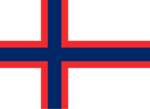Commonwealth of Uskor
Commonwealth of Uskor Samveldet Uskor | |
|---|---|
| Motto: | |
| Anthem: None | |
| New South Wales, Australia. | |
| Capital and largest city | Freyavik |
| Official languages | English (Official and Legal), Norwegian (Official), Anglish (Cultural), Uskorian (Ceremonial) |
| Demonym(s) | Uskorian |
| Government | parliamentary constitutional monarchy |
• High Queen | High Queen Charlotte |
• Prime Minister | Claire Calabresi-Halvorsen |
| Legislature | Legislative Council of Uskor |
| Establishment | 26 August 2017 (current state), 28 February 2010 (historical) |
| Population | |
• (January 2016 estimate) census | 20 |
| Currency | Uskorian Crown |
| Time zone | UTC+11:00 (Uskor Normal Time) |
Uskor, more commonly known as the Commonwealth of Uskor, is a micronation located in Australia, founded on 28 February 2010.
History
The Commonwealth of Uskor was founded on 28 February 2010 as the Kingdom of Zealandia. The early years of the kingdom were dominated by the Progressive Party (SDPZ), under Zealandia's first Prime Minister, Robert Kennedy.
On 28 December 2010, Sebastian Linden led the Social Democratic Party to its largest electoral victory. The kingdom was reformed into a grand duchy on 5 January 2011 and soon after joined in a union with the Principality of Eleytheria, effectively ending the succession of Eleytheria from the union. The kingdom reformed from a grand duchy back to a kingdom on 21 February 2011.
On 22 February 2011, the kingdom was battered by a second earthquake, causing major damage to Denton and other provinces located around Christchurch New Zealand, with some citizens narrowly escaping injury or death both in Christchurch City Center and in the Suburbs of Christchurch.

On 1 December 2011, Joseph Puglisi led the then Best Party of Zealandia to electoral victory, which was the first time an openly socialist party had won.
Between 4–8 February 2012, a period of civil conflict took place with a breakaway nation (Republic of Zealandia) being formed and absorbed by Zealandia. This resulted in the establishment of the office of the President of Zealandia.
On 14 May 2012, politicians within Zealandia voted to accept the Nemkhav Federation Stability Mission in Zealandia (Zealandian: Nemkawðamtøk Stabulteit Misjon i Zålandien; Swedish: Nemkav Förbunds Stabilitet Mission i Zeelandien; abbreviated: NFSM or NðSM) after it was proposed by former Zealandian prime minister (and at the time Prime Minister of the Nemkhav Federation Marka Mejakhansk), and Nemkhav President Alex Ulbricht in an effort to repair Zealandia's constitutional status.
Tensions rose between the Zealandian Parliamentarians, Queen Astrid and Nemkhav Foreign Minister J.J. Hakimoto, leading to Queen Astrid removing the mission during the late night of 27 May 2012, to which an international committee was held on the Zealandian constitution afterwards with the subsequent amendment being approved in a referendum on 9 June 2012.
On 1 August 2012 the Winter Revolution occurred, sparking the declaration of the Federal Republic of Zealandia over the Kingdom.
The Federal Republic was disposed of in a coup held on 16 February 2013; this was followed by the Red April Revolution in April 2016. In early 2017, a referendum was held in Zealandia which officially changed its name to the Commonwealth of Uskor.
Geography
Situated on the east coast of the Australian continent, Uskor shares many geographic conditions that are common along the east coast of Australia. Uskor’s physical geography is extremely varied, with the nation having landscapes that include bushland and coastal seascapes to metropolitan areas.
Languages
According to the Constitution of Uskorian, Uskor has three official languages: English, Anglish and Uskorian. English and Anglish are the predominant languages and are used in law and politics. Uskorian is used ceremonially.
Government and politics
Politics in Uskor are governed by the Constitution of Uskor, with citizens being elected to the People's Assembly of Uskor. The cabinet consists of ministers who are selected from the members of the ruling party and appointed to their post by the Council of State. The judiciary consists of the Council of Justice of Uksor and the lower courts. There is currently one political party within Uskor: the Uskorain League of Communists
Military
Uskor has no formal standing military, however it may call up the the Royal Uskorian Coast Guard and the Ministry for State Security's Guards Regiment in the event that military style defense is required.
Law enforcement and civil defense
Law enforcement is carried out in Uskor by the Uskorian Watch. Uskorian Law Enforcement officers (Guardians of Her Majesty's Peace), often referred to as “watchmen” are unarmed. The watchmen's duties cover general law enforcement and policing matters as well as dealing with Customs and border control issues and enforcement within the non-open border areas.
Civil defense is within the purview of the Civil Defence Corps of Uskor, commonly called Civil Defence Uskor. Duties include combating floods, storms and tsunamis, as well as other civil defense-related issues. The Civil Defence Corps of Uskor are also responsible for rendering any assistance to the government during a state of emergency. Civil defense is commanded by the National Command Authority and administered through the Ministry for State Security.
Culture
Foreign relations
- See also: Foreign relations of Uskor
Uskor was a member of the Grand Unified Micronational until it left amid controversy in the Olofgate scandal. It was also a member of TASPAC preceding a dispute with the organization. Uskor was a member of the Organisation of Active Micronations until the end of that organization’s lifespan, in which Charlotte Lindstrom was its final secretary-general. However, when the GUM was re-launched in mid-2016 with a new charter, Uskor rejoined the organization. Uskor was also a member of Syolian Union until October 2012, but is otherwise generally unaligned.

